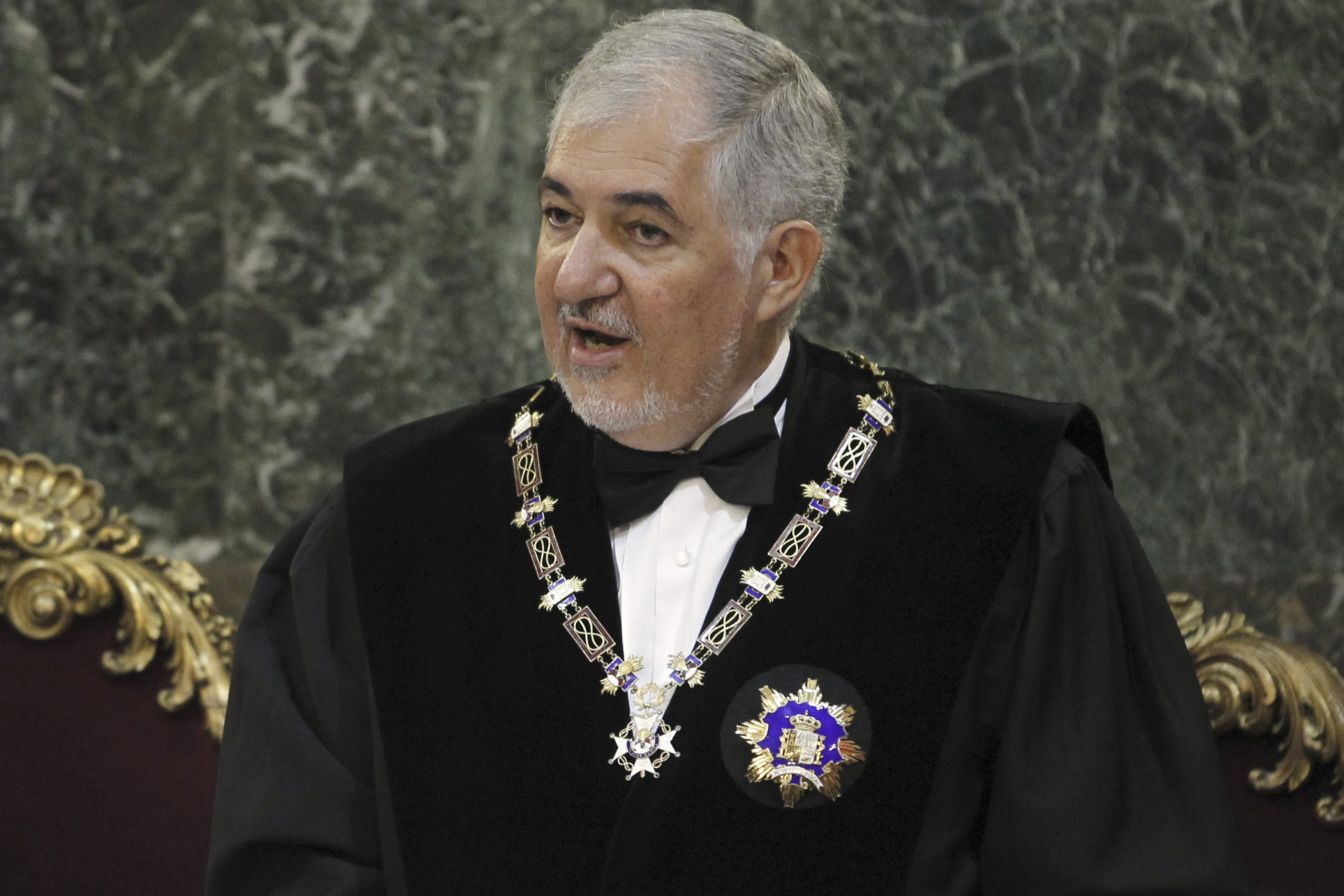The new president of Spain's Constitutional Court, Cándido Conde-Pumpido, has given his first official speech after being appointed, addressing himself to the rest of the constitutional judges with a discourse that included certain warnings. The warnings were addressed to the Catalan independence movement, as well as to the Spanish government in the event that it should ever come to consider holding a referendum on self-determination in Catalonia; and they also served as a response to the new progressive judge on the court, María Luisa Segoviano, whose comments on the same subject last week set off alarm bells in Madrid. "The Constitution does not allow secession, independence or self-determination", said the justice who has replaced Pedro González-Trevijano at the head of the Spanish court of guarantees.
Segoviano had stated in an interview with radio station Onda Cero that self-determination is "a complex issue" that "should be studied". "One should not be afraid of any approach, any position or suggestion," she warned. Days later, Conde-Pumpido's speech highlighted the career background of the new judges who entered the Constitutional Court on Monday: Juan Carlos Campo, María Luisa Segoviano, Laura Díez and César Tolosa. Similarly, he also tried to make it clear that the Constitution had to protect the autonomous communities and respect plurality within the territorial sphere. However, he also stressed the compatibility of this with the concept that Spain's law of laws does not permit the self-determination of the peoples that make up the state.
Court's division continues
Cándido Conde-Pumpido became president of the Constitutional Court this Wednesday, after he was chosen by a one-vote majority to head the institution. The first plenum of the new court of guarantees once again demonstrated the division between progressive and conservative judges, since Conde-Pumpido only received six votes. María Luisa Balaguer obtained five votes, having obtained the support of the conservative sector, which considered her more suitable for the position because she does not have a past so rooted in party politics. Conde-Pumpido has a curriculum with Socialist overtones, as he was Chief Public Prosecutor during the prime ministership of former PSOE leader José Luis Rodríguez Zapatero.
On Tuesday, the progressive judges held a private meeting to try to reach an agreement and present themselves at Wednesday's plenary session with a single name on the table. They failed. Although the favourite of this judicial sector was Conde-Pumpido, María Luisa Balaguer did not give up and did not withdraw her candidacy. The reason? She hoped to receive the support of the conservatives and also obtain the key vote of María Luisa Segoviano, who finally opted for the former head of the prosecution service.
Conde-Pumpido also took part in the Catalan independence process. He coordinated the processing of appeals presented in the case against the leaders of the 2017 independence process. The efforts made by this progressive judge have always been aimed at achieving the maximum possible unanimity, but he ended up recusing himself on this matter after the Catalan president-in-exile, Carles Puigdemont, challenged him. The former head prosecutor was also a judge on the high-level criminal court, the National Audience, between 1981 and 1985, some of the most difficult years of the Basque conflict. He has also been a judge in the criminal chamber of the Supreme Court for two periods. In fact, he arrived at this court when he was only 45 years old, the youngest judge ever to do so.

